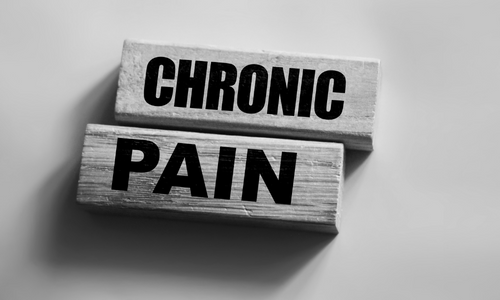So, how do you know if your pain is temporary or if it’s more serious? And when do you need to seek treatment? In this blog post, we break down the tell-tale signs that your pain isn’t just short-lived and that it’s time to seek treatment.
1. You’re taking pain medication daily

If you’re taking pain medication on a daily basis, it may be time to consult a healthcare professional. Over-the-counter and prescription pain medications can be helpful in keeping your pain under control, but they are not long-term solutions. Not only can taking pain medication for extended periods of time lead to tolerance, but it does not address the root cause of your pain. In order to see effective results for your pain, it’s important to seek treatment from a health professional – like a physiotherapist or family doctor.
2. You experience pain that interferes with work, daily activities, or workouts

Although general aches and pains are a natural part of being human, pain should not be a constant presence in your life. If you’re frequently experiencing pain that interferes with your work, daily activities, or workouts, it’s time to seek treatment. There are a wide variety of effective pain management techniques and treatments available, so there’s no need to suffer. Pain can have several different causes, so the first step is to visit a specialist – like a physiotherapist – to identify the source of your pain. Once the cause has been determined, your specialist can develop a customized treatment plan to help you find relief. Depending on the cause and severity of your pain, treatments might include a variety of different manual therapies, exercise prescriptions, movement pattern retraining, and more.
3. Pain is waking you up at night or making it difficult to get to sleep

When you’re in pain, it’s all you can focus on. Whether it’s a throbbing headache or a sharp twinge every time you move, pain can make it difficult to concentrate on anything else. If pain keeps you up at night or makes it hard to fall asleep, it’s time to seek treatment. Both chronic and acute can have a significant impact on your quality of life, which in turn can further exacerbate the problem. Seeing an expert in pain management can help you get back to feeling better.
4. You experience pain during exercise and it doesn’t go away

Experiencing some discomfort during exercise – and even after – is not unusual. However, if there is pain, and the pain does not go away after a few days of rest, it is time to seek treatment. There are several possible causes of persistent exercise-related pain, including overuse injuries, bone fractures, and nerve damage. untreated, these conditions can lead to chronic pain and disability. Fortunately, there are many effective treatments available: an expert can help you find the root of your pain, and provide different therapies to help relieve it. Options like physical therapy can help to strengthen the muscles and joints, while also relieving muscle tension and promoting healing. Whatever the cause of your pain, it is important to seek treatment as soon as possible to avoid exacerbating the condition.
5. Your pain lasts longer than three months

When you experience pain, it is your body’s way of telling you something is wrong. Most of the time, pain is acute, meaning it is sharp and lasts for a short period. Acute pain is often the result of an injury or illness and usually goes away once the underlying problem has been resolved. However, some people experience chronic pain, which is defined as pain that lasts for three months or longer. Chronic pain can be caused by a wide variety of conditions, including acute pain that hasn’t been dealt with. If you are experiencing what you think is chronic pain, it is important to seek treatment from a medical professional. Untreated chronic pain can lead to a decline in mental and physical health, as well as decreased productivity and quality of life.
6. It’s causing you anxiety

When you’re in pain, it’s natural to feel anxious. After all, pain is our body’s way of telling us that something is wrong. However, when anxiety and pain start to feed off of each other, it can be difficult to break the cycle. If your pain is causing you anxiety, it’s time to seek treatment. An expert can help you identify the source of your pain and develop a plan to manage it. In some cases, medication may be necessary to help relieve your symptoms. However, many non-medical treatments can be effective, such as physical therapy and rehabilitation.
_______________
If you’re experiencing any of these, it’s time to seek treatment for your pain. At Vancouver Physiotherapy Hub, our physiotherapists are experts in treating your pain. We can work with you to provide you with acute pain relief while educating you on proper movements, techniques, and exercises to manage your pain and keep it at bay.






